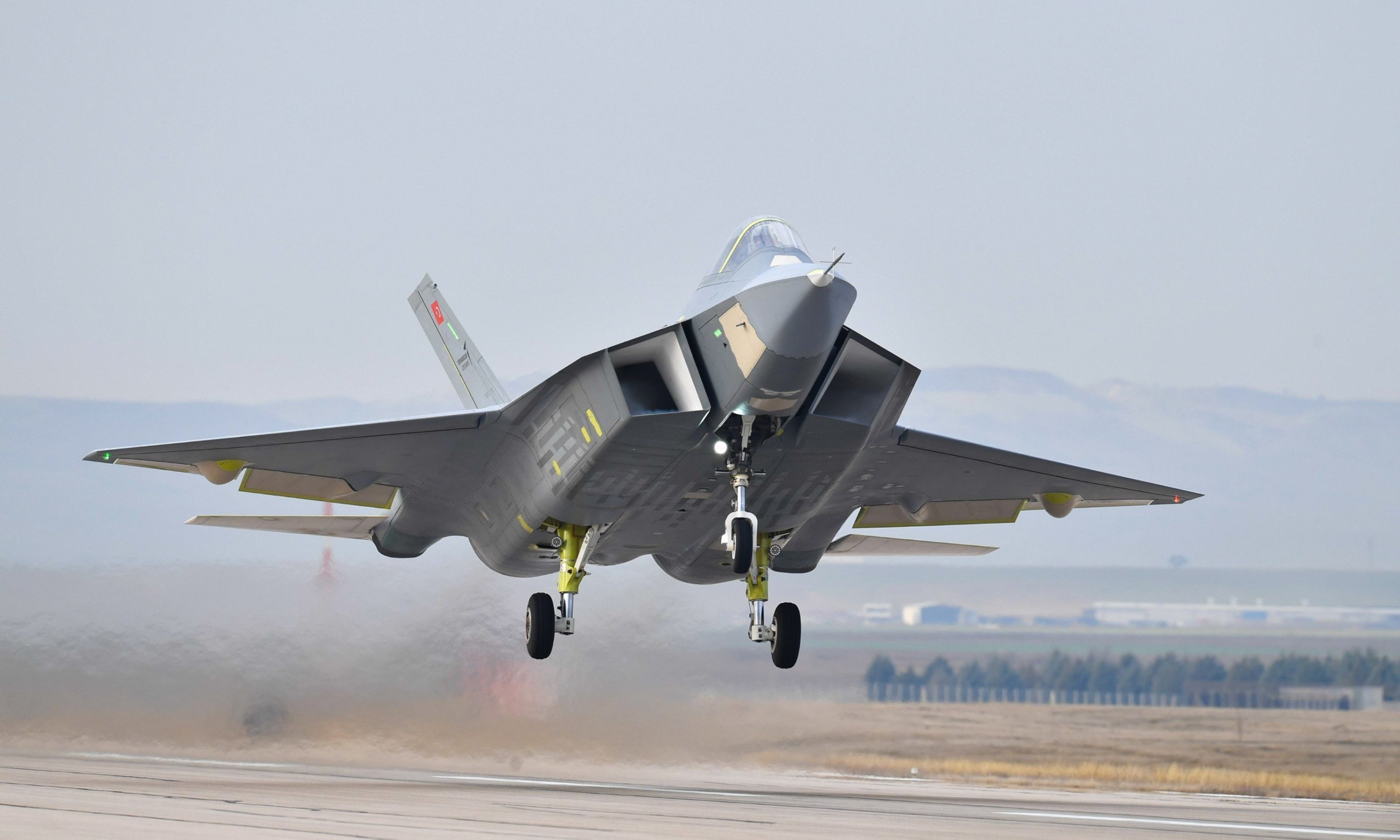Indonesian Ministry of Defense spokesperson Frega Wenas Inkriwang announced today that Indonesia and Turkey have "signed an implementation contract" for Ankara to sell 48 domestically produced KAAN fighter jets to Jakarta.
The agreement was signed on 26/7 on the sidelines of the International Defense Industry Fair (IDEF) in Istanbul. The contract value and delivery timeline have not been disclosed.
Indonesian Defense Minister Sjafrie Sjamsoeddin witnessed the signing ceremony, Frega said, adding that the contract reaffirms both governments' commitment to technological cooperation and expanding Jakarta's defense industrial capacity.
In a social media post on the evening of 28/7, Minister Sjafrie said Indonesia also signed a memorandum of understanding with Turkish shipyard TAIS to purchase two Milgem Istif-class corvettes during IDEF 2025.
 |
Turkey's KAAN fighter jet takes off for the first time in Ankara, 2/2024. Photo: Anadolu |
Turkey's KAAN fighter jet takes off for the first time in Ankara, 2/2024. Photo: Anadolu
The KAAN purchase is part of Indonesia's air force modernization. In 2022, the country ordered 42 French Rafale fighter jets for USD 8.1 billion and is negotiating to buy American F-15EX fighters, as well as considering the Chinese-made J-10.
The KAAN, Turkey's first indigenous fighter jet, first flew in 2/2024. Mass production is expected to begin in 2028.
The Turkish Ministry of Defense describes it as a fifth-generation fighter, meaning it possesses stealth capabilities. However, it will initially be equipped with two General Electric F-110 engines, the type used on the fourth-generation F-16 fighter, before switching to domestic engines in 2030.
According to the manufacturer, the single-seat fighter has a top speed of Mach 1.8 (approximately 2,200 km/h), a service ceiling of nearly 17 km, and 14 hardpoints under the wings and internally for various bombs and missiles.
Turkey is a major arms exporter with prominent products and customers across Europe and the Middle East. Its arms exports steadily increased to USD 7.1 billion in 2024, compared to just USD 1.9 billion a decade earlier.
Pham Giang (Reuters)












